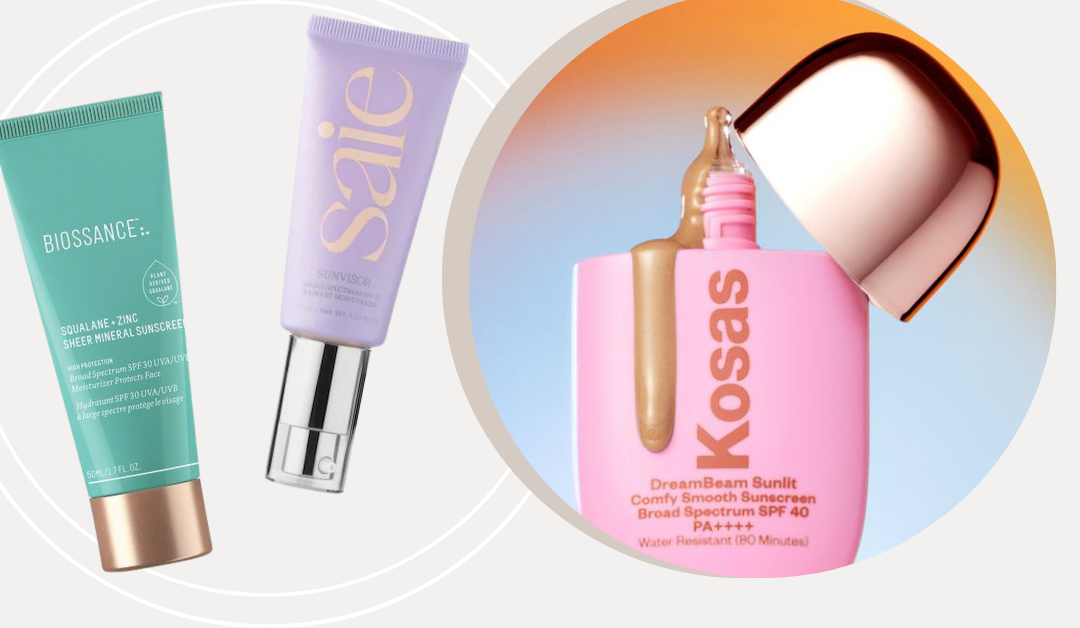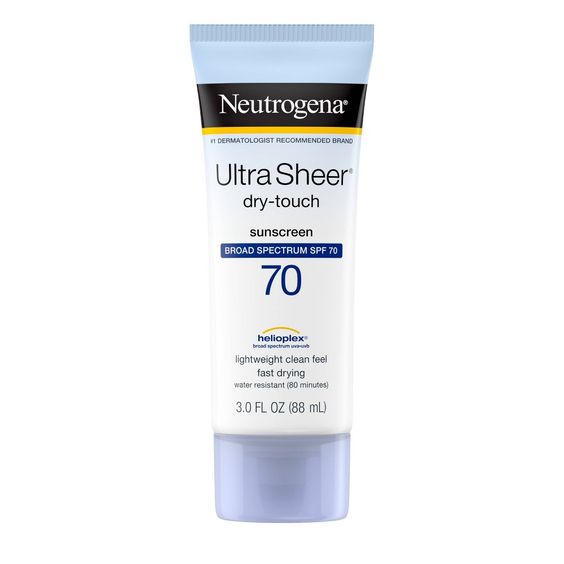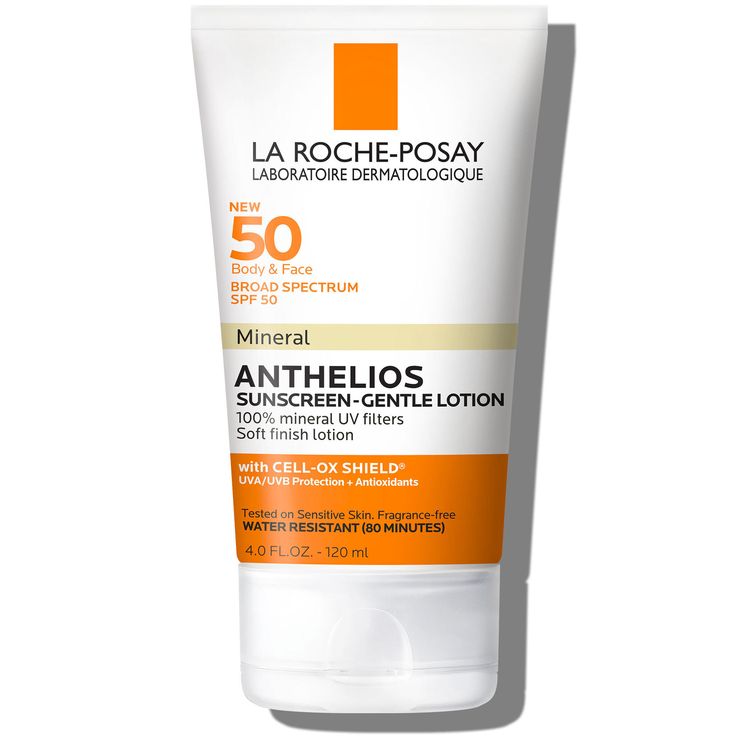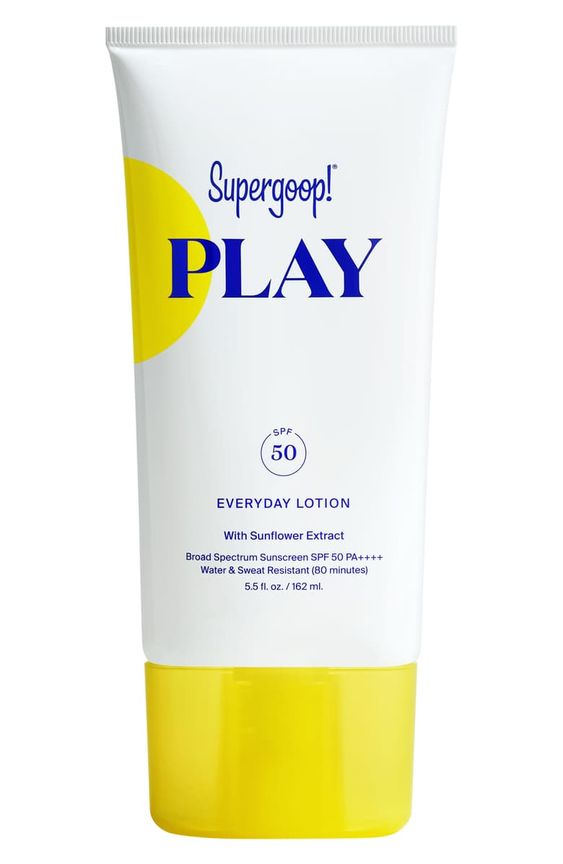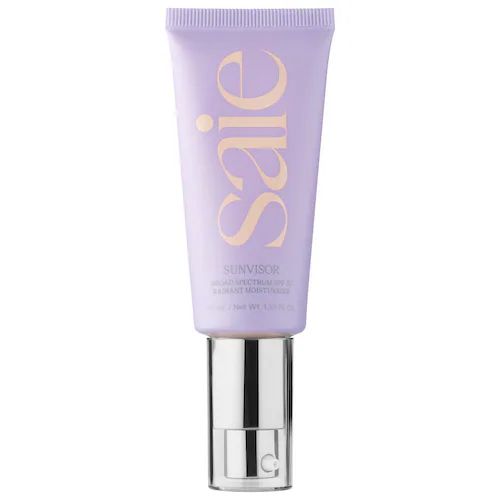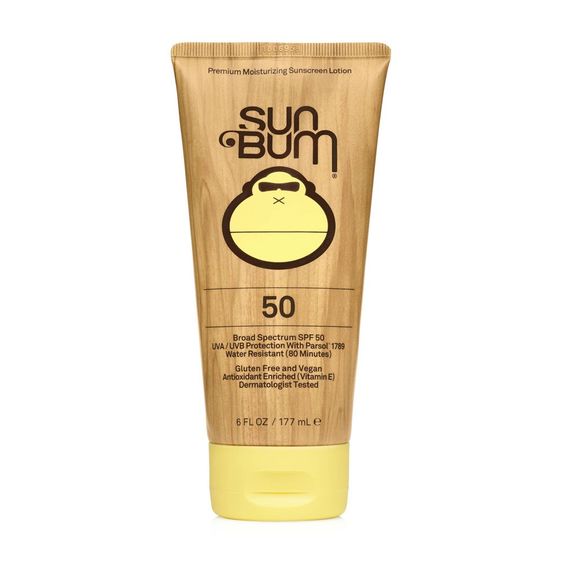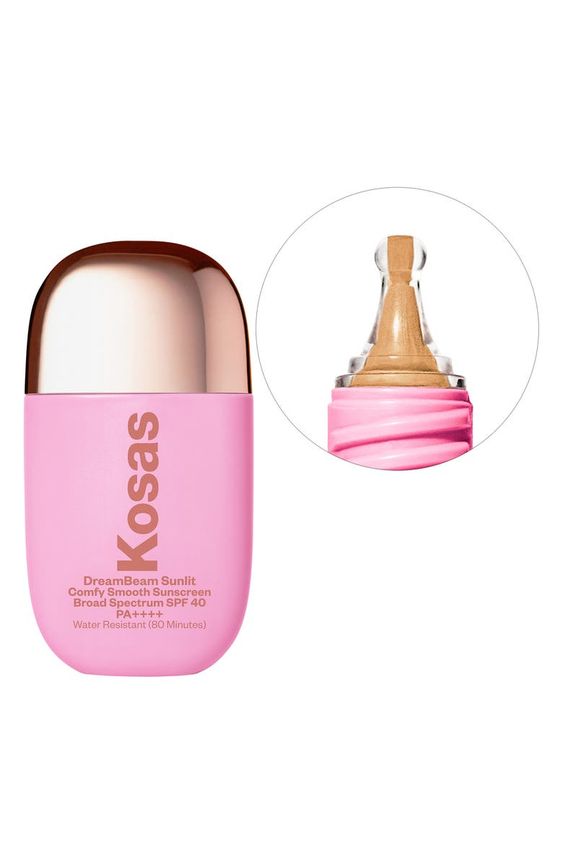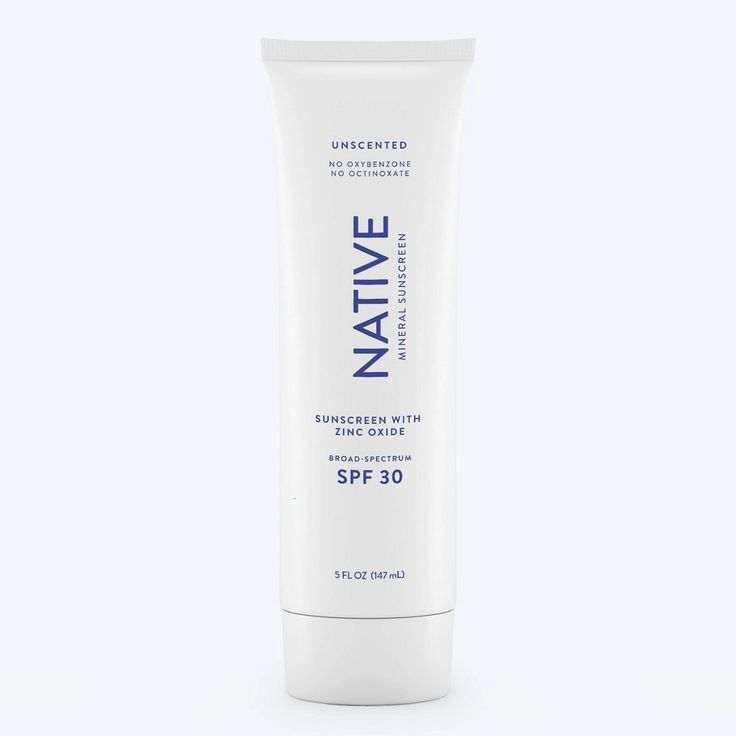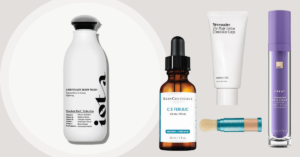This post may contain affiliate links, which means I’ll receive a commission if you purchase through my link, at no extra cost to you. Please read full disclosure: here.
I’ve been on a quest recently to discover the best safe sunscreen products and organic UV filters for my skin. As someone who loves spending time at the beach, I know the importance of protecting my skin from the sun’s harmful rays.
However, with so many sunscreen products on the market, it can be overwhelming to figure out which ones are truly safe and effective.
After doing some research and consulting with dermatologists, I’ve compiled a list of 17 best clean sunscreen products that will protect your skin and nourish and hydrate it.
Plus, we collected expert advice on which toxic sunscreen ingredients to avoid, as they can potentially harm your skin and overall health.
Importance of Sunscreen and Awareness of Harmful Ingredients
Sunscreen is crucial in the fight against skin cancer and premature skin aging, making it a non-negotiable part of your daily routine.
However, not all sunscreens are created equal, and some contain ingredients that could be harmful to both your skin and the environment.
Eco-conscious women and luxury beauty product aficionados are increasingly aware of the potential hazards lurking in their sunscreen bottles.
This blog post outlines what to avoid for healthy, protected skin.
Now, Let’s take a closer look at the top 17 sunscreens that you may want to add to your skincare routine.
Top Broad Spectrum Sunscreen Products Reviewed:
1. Neutrogena Ultra Sheer Sunscreen – Dry Touch
-
SPF: 70+
-
Key Details: Broad-spectrum UVA/UVB protection, Helioplex technology, water-resistant.
-
Pros: Offers high SPF coverage and robust protection; lightweight, non-greasy texture.
-
Cons: May leave a slight white residue on darker skin tones.
-
Best For: Those seeking maximum sun protection.
2. Soleil Toujours Clean Conscious Antioxidant Sunscreen Mist
- SPF: 30
- Key Details: Fine mist spray with antioxidant and anti-aging ingredients.
- Pros: Easy application; can be used on both face and body.
- Cons: May require multiple sprays for full coverage.
- Best For: On-the-go touch-ups or those who prefer a spray sunscreen.
3. La Roche-Posay Anthelios
-
SPF: Ranges including 50 to 60
-
Key Details: Advanced Cell-Ox Shield XL technology.
-
Pros: Smooth application with no white cast; excellent for sensitive skin.
-
Cons: Higher price point.
-
Best For: Sensitive skin needing high protection without irritation.
4. EltaMD UV Clear
-
SPF: 46
-
Key Details: Suitable for acne-prone skin; contains niacinamide.
-
Pros: Helps reduce redness; lightweight and doesn’t clog pores.
-
Cons: Pricey relative to quantity.
-
Best For: Acne-prone or sensitive skin users.
5. Supergoop! Play
-
SPF: 50
-
Key Details: Reef-safe, broad-spectrum protection, water-resistant.
-
Pros: Sheer application; environmentally friendly.
-
Cons: Can be greasy on oily skin types.
-
Best For: Outdoor activities and environmentally conscious users.
6. Black Girl Sunscreen Broad Spectrum
-
SPF: 30
-
Key Details: Designed for people of color; includes moisturizing ingredients.
-
Pros: Leaves no white residue; hydrates skin.
-
Cons: SPF lower than some may desire.
-
Best For: Those looking for moisture plus sun protection without a white cast.
7. Biossance Squalane + Zinc Sheer Mineral Sunscreen
-
SPF: 30
-
Key Details: Non-nano zinc oxide and squalane-infused formula.
-
Pros: Offers hydration alongside protection; reef-safe.
-
Cons: May leave a white cast on darker skin tones.
-
Best For: Those looking for a mineral-based sunscreen with added benefits.
8. Saie Sunvisor Face Cream | FEMMENA top-pick Best Clean SPF
-
SPF: 35
-
Key Details: Clean, reef-safe formula with moisturizing and anti-inflammatory ingredients.
-
Pros: Smooth application; suitable for all skin types.
-
Cons: Higher price point.
-
Best For: Those seeking a clean, environmentally friendly option with added skincare benefits.
9. Sun Bum Original Sunscreen Lotion
-
SPF: 50
-
Key Details: Hypoallergenic and reef-friendly.
-
Pros: Moisturizing formula; water-resistant.
-
Cons: Some may find the scent overpowering.
-
Best For: Daily use for all skin types.
10. Australian Gold Botanical Mineral Sunscreen
-
SPF: Ranges including 30 or 50
-
Key Details: Mineral-based sunscreen with no chemical active ingredients.
-
Pros: Lightweight and gentle on skin; vegan and cruelty-free.
-
Cons: May leave a slight white cast on darker skin tones.
-
Best For: Those seeking a mineral-based, environmentally friendly option for everyday use.
11. Aveeno Protect + Hydrate Sunscreen
-
SPF: 50
-
Key Details: Broad-spectrum UVA/UVB protection with nourishing oat.
-
Pros: Non-greasy and fast-absorbing; suitable for daily use.
-
Cons: May irritate sensitive skin.
-
Best For: Those looking for a budget-friendly, moisturizing sunscreen.
12. CeraVe Hydrating Sunscreen Body Lotion
- SPF: 50
- Key Details: Contains ceramides and hyaluronic acid for added hydration.
- Pros: Suitable for sensitive skin; moisturizing formula.
- Cons: May feel heavy or greasy on oily skin types.
- Best For: Those with dry or sensitive skin seeking extra hydration in their sunscreen.
13. Drunk Elephant Umbra Sheer Physical Daily Defense
- SPF: 30
- Key Details: Non-toxic, physical sunscreen with antioxidants.
- Pros: Lightweight and non-greasy; suitable for all skin types.
- Cons: Pricey relative to quantity.
- Best For: Those looking for a clean, natural sunscreen option.
14. Shiseido Ultimate Sun Protection Lotion WetForce
- SPF: 50+
- Key Details: WetForce technology activates under water or perspiration for added protection.
- Pros: Water-resistant and suitable for all skin types.
- Cons: May be too heavy for oily skin types.
- Best For: Outdoor activities or beach days where sweating or swimming is expected.
15. Coola Classic Organic Sunscreen Spray
- SPF: 50
- Key Details: Spray application for easy and even coverage; includes organic plant-based ingredients.
- Pros: Lightweight, non-greasy formula; environmentally friendly.
- Cons: May contain alcohol and scent may be overpowering to some.
- Best For: Those looking for a convenient sunscreen option with added natural ingredients.
16. Kosas DreamBeam Sunscreen
- SPF: 40
- Key Details: Packed with ceramides and peptides to moisturize, visibly smooth, and brighten skin’s complexion.
- Pros: Easy application; a lightweight mineral sunscreen that looks beautiful as a lightweight tinted moisturizer.
- Cons: May not be suitable for oily skin types; on the pricier side.
- Best For: Those looking for a multitasking product that provides both sun protection and skin-improving benefits.
17. Native Mineral Sunscreen (Unscented)
- SPF: 30
- Key Details: Mineral-based formula with no added fragrances.
- Pros: Non-greasy and gentle on skin; suitable for all skin types, including sensitive skin.
- Cons: May leave a slight white cast on darker skin tones.
- Best For: Those looking for a clean, fragrance-free sunscreen.
You’ve Got Questions – We’ve Found The Answers!
What Toxic Ingredients Are in My Sunscreen?
1. Oxybenzone
Oxybenzone, a common ingredient in chemical sunscreens, can have adverse health effects and has proven to be detrimental to coral reefs. It has been associated with hormonal disruptions and has been linked to allergic reactions when exposed to sunlight.
2. Octinoxate
Like Oxybenzone, Octinoxate affects coral reefs and marine life, contributing to the increasing problem of coral bleaching. Octinoxate is also recognized for its potential endocrine-disrupting properties, which can interfere with hormone balance.
3. Parabens
Parabens are a group of preservatives used in a wide range of cosmetics, including sunscreens. While effective against bacteria and fungus, they are suspected of being endocrine disruptors and may interfere with hormone production and regulation.
4. Retinyl Palmitate
This form of vitamin A is added to sunscreens for its antioxidant properties. However, when exposed to the sun, Retinyl Palmitate may degrade and produce free radicals that could increase the risk of skin cancer.
What Are The Benefits of Mineral Sunscreens?
Mineral sunscreens, containing ingredients like titanium dioxide and zinc oxide, offer an alternative to chemical sunscreens without environmental and health concerns. They provide protection by physically blocking the UV rays and are less likely to cause irritation, making them a safer choice for sensitive skin types.
How Can I Choose Safer Sunscreen Options?
When shopping for sunscreens, look for mineral-based options and check labels for certifications that may indicate a product is free from harmful chemicals.
Learning to demystify labels is a significant step toward selecting superior sun protection. For those inclined to a more hands-on approach, exploring DIY sunscreen alternatives can also be a rewarding path to safer skin care.
Final Thoughts …
The quest for the perfect sunscreen is highly personal, depending on individual skin types, preferences, and environmental considerations.
The market’s vast range caters to just about every need—whether looking for a gentle mineral formula or a high-performance sports variant.
Remember, the best sunscreen is the one you’re willing to use consistently. Alongside avoiding harmful ingredients, choosing a sunscreen you enjoy applying daily is crucial.
When in doubt, consulting with a dermatologist can help you select the sunscreen that best aligns with your skin needs and lifestyle preferences, ensuring optimal protection and skin health.
Editors Note: About Meghan
The FEMMENA explores the intersection between classic styles, practicality, and sustainability. Our mission is to help you feel confident and stylish without compromising your values or breaking the bank. Join us as we navigate the world of fashion with finesse and a mindful approach.
This post is all about the best clean sunscreen products.

